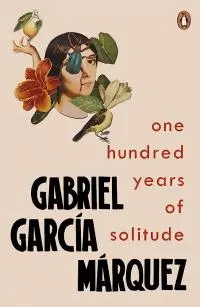Image by Mariano Ruffa via Pexels
Maybe you've had this experience too, but at some point during my literary education I learned what a hanging ending was, and I remember thinking it was genius—why bother to write a decent ending when you could just STOP writing and let the reader do all the work? Soon, all my stories had hanging endings, and I was smug in my belief that I was following in the footsteps of great writers and that anyone who didn’t “get it” was just daft.
Later on in my literary career, I was halfway through a stack of fiction submissions for the Minnesota Review when I had a sudden—and violent—reversal of opinion. After reading hundreds of stories, I realized the widespread abuse of this particular ending style. Story after story just fizzled out at the end. Characters stayed static and curling plots suddenly contracted rigor mortis and went cold. Hanging endings, I realized, when not done REALLY well, sucked.
 There are bad story endings (“And then she woke up!” or “Please tell my son that I love him." *Cough* *Die*), but nothing is so unsettling as no ending at all. “Hanging endings” are also called “cliffhangers” and specifically refer to serial fiction that leaves the main character in an unresolved situation until the next installment. It’s perfectly legit. But somewhere along the line, writers penning one-offs also felt they could abandon their characters (and readers) mid-plot and call it “contemporary.”
There are bad story endings (“And then she woke up!” or “Please tell my son that I love him." *Cough* *Die*), but nothing is so unsettling as no ending at all. “Hanging endings” are also called “cliffhangers” and specifically refer to serial fiction that leaves the main character in an unresolved situation until the next installment. It’s perfectly legit. But somewhere along the line, writers penning one-offs also felt they could abandon their characters (and readers) mid-plot and call it “contemporary.”
The ending is the most important part, and as a writer you should want to write a spectacular ending because, hey, you did a heck-of-a-lot of work on the beginning and middle parts. Not only that, but if you made your reader work along the way, or happened to fumble a plot reveal, you’ll be sure to win him/her back if the ending justifies it. For example, I can’t remember all the plot turns or how many characters named "Aurelio" there were in One Hundred Years of Solitude, but I do remember reading the end of that epic novel and thinking Gabriel García Márquez wrote such a fantastic last paragraph that it justified all the confusion and re-reading I had done along the way.
So how do you ensure your story gets a fantastic ending? My suggestion is to write it first, while you still have energy. For those of you participating in National Novel Writing Month (NaNoWriMo), imagine how exhausted you’ll be come November 29th after all that comfort food, Black Friday spending, and furious late-night typing. Are you really going to be able to do your characters justice? I know my heroine from last year’s novel is still swinging in the wind. (Sorry, Carissa, but I still have no idea how to get you out of the mess I got you into.)
So before you spend 10k words on that awesome opening chapter you’ve been dreaming about, invest in your future; write the finale first. If you feel sort of dumbfounded by the concept, ask yourself a few questions first:
- What is the tone of my story, and what mood do I want to leave the reader in when he/she puts the book down?
- Do I want this story to have a moral or message? What is it?
- Are my main characters going to live or die?
- What is my plot twist?
- What is the setting of the final scene or event?
- What big pieces of the story will I need to tie up in the end?
A few things to keep in mind are that great endings often make great beginnings, too. For example, the 1995 film The Usual Suspects opens with a scene that takes place at the end of a series of plot twists in which characters are not who they first appear to be. However, the final scene of the movie reveals a twist to the whole story that makes the first scene of the movie take on an entirely different meaning. As you know, it’s not uncommon for movies and books to start at or near the end of the plot trajectory as a sort of hook, only to circle back to the beginning to tell how it all really happened—usually with a twist. In the book world, Mary Wollstonecraft Shelley’s Frankenstein is a classic example.
Let’s apply the questions above to The Usual Suspects as a test to see how this analysis method works (SPOILER WARNING):
- The mood of the story is one of mystery and fear, mostly surrounding the faceless villain, Keyser Söze. The narrator, Verbal Kint, is characterized by his fearful demeanor and seeming reluctance to put himself in real danger. The final mood is the reverse. Kint becomes more confident and the detective is the one who is unsure of himself.
- The moral of the story (if I may be so bold) is that appearances can fool someone who thinks he cannot be fooled, such as the detective.
- The main character lives, but the supporting characters do not. Up until the end, the viewer doesn’t know how key the main character actually was to the entire plot.
- The plot twist is that Verbal Kint, who appears to suffer from cerebral palsy and who narrates the whole story to the detective is actually the legendary and elusive villain, Keyser Söze.
- The final scene is just outside the police station after Kint is finally released following interrogation by the detective. As he walks away, the camera cuts back to the detective. Thinking he has figured it all out, he turns to the bulletin board behind the desk and realizes that the entire story Kint has just told him was improvised from details on the board and in the room. At the same time, a fax comes through with a police sketch from the only survivor who could identify the villain, revealing Kint’s face. The camera shows Kint walking away from the station, limping at first, but then walking normally until he is picked up by a car driven by another character in the story who was to have worked for the villain.
- The details the detective notices at the end tie up each plot turn of the story and offer a totally different viewpoint than the one presented to the detective via the story that Kint tells him. Each detail is revealed to be made up by the Verbal Kint who, it turns out, is Keyser Söze. The detective and the viewer realize at the same time that they have been tricked and most of what they just saw was an elaborate tale from a true criminal mastermind.
For today's exercise write a paragraph (or two, or three) that could be the very last scene of a short or long story. If you like, you can follow the example of The Usual Suspects and reveal a new side to the details that pull the plot together. Have fun.
Post your writings here as comments if you’d like & get us all itching to read the rest of your story (once you have finished writing it).
Get One Hundred Years of Solitude at Bookshop or Amazon
Get The Usual Suspects at Amazon

About the author
Taylor Houston is a genuine Word Nerd living in Portland, OR where she works as a technical writer for an engineering firm and volunteers on the planning committee for Wordstock, a local organization dedicated to writing education.
She holds a degree in Creative Writing and Spanish from Hamilton College in Clinton, NY. In the English graduate program at Penn State, she taught college composition courses and hosted a poetry club for a group of high school writers.
While living in Seattle, Taylor started and taught a free writing class called Writer’s Cramp (see the website). She has also taught middle school Language Arts & Spanish, tutored college students, and mentored at several Seattle writing establishments such as Richard Hugo House. She’s presented on panels at Associated Writing Programs Conference and the Pennsylvania College English Conference and led writing groups in New York, Pennsylvania, and Colorado for writers of all ages & abilities. She loves to read, write, teach & debate the Oxford Comma with anyone who will stand still long enough.








